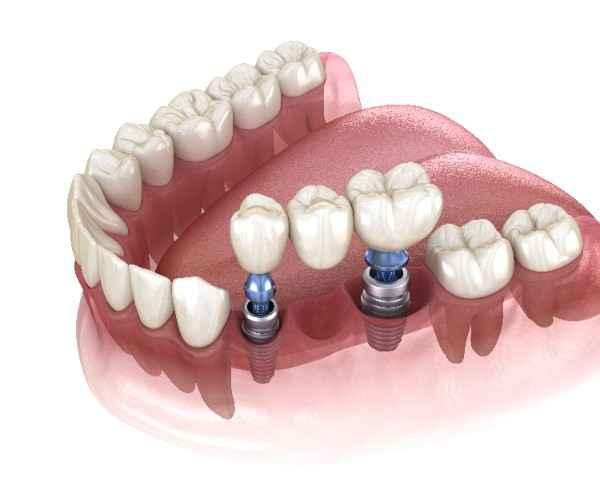Understanding the Longevity of Dental Implants

Dental implants have become a preferred solution for replacing missing teeth, offering both functional and aesthetic benefits. They are designed to be long-lasting, often providing a permanent solution when properly maintained. However, their durability is influenced by several factors, from the materials used to the patient’s oral hygiene and lifestyle. Understanding these factors is essential for anyone considering implants, as it allows for informed decision-making and better care of the investment in your smile.
This guide explores the critical aspects that affect dental implant longevity, providing insights on materials, bone health, lifestyle influences, oral hygiene, and professional guidance to ensure a durable and successful outcome.
What Are Dental Implants?
A key factor in dental implant longevity is the quality and density of the jawbone, as a properly placed dental implant Brighton relies on strong bone to fuse correctly through the process of osseointegration.
Key benefits of dental implants include:
- Osseointegration: Titanium or zirconia posts fuse with the jawbone to provide stability.
- Support for restorations: Implants can hold single crowns, multiple bridges, or full dentures.
- Aesthetic and functional improvement: Implants restore chewing function and enhance the overall smile.
Dental implants are often preferred over traditional dentures or bridges because they prevent bone loss, maintain facial structure, and offer a long-term solution that can last decades with proper care.

Materials Used in Implants
The materials chosen for dental implants play a vital role in their durability and success. High-quality materials ensure better integration, strength, and resistance to wear.
Common materials include:
|
Material |
Benefits |
Considerations |
|
Titanium |
Highly biocompatible, strong, widely used |
Metallic appearance may affect aesthetics in some cases |
|
Zirconia |
Metal-free, excellent aesthetics, corrosion-resistant |
Less long-term data available compared to titanium |
|
Abutments & Crowns |
Quality impacts strength and appearance |
Porcelain or ceramic crowns may chip over time |
Selecting the right material in consultation with a dental professional ensures implants are both durable and visually pleasing. For example, a consultation with an Emergency Dentist in Brighton can provide personalised guidance on the best options for each patient.
Bone Health and Implant Success
A key factor in dental implant longevity is the quality and density of the jawbone. Strong bone supports the implant and allows it to fuse properly, a process known as osseointegration.
Important considerations include:
- Bone density: Patients with insufficient bone may require bone grafts before implantation.
- Medical conditions: Osteoporosis or other bone-affecting conditions can influence implant success.
- Monitoring: Regular dental check-ups ensure the implant remains stable and bone health is maintained.
Ensuring adequate bone health before and after implant placement is crucial for achieving a long-lasting result.
Lifestyle Factors Affecting Longevity
Daily habits and lifestyle choices can significantly impact how long dental implants last. Making informed decisions helps protect your investment.
|
Lifestyle Factor |
Impact on Implants |
|
Smoking |
Slows healing, increases the risk of implant failure |
|
Oral hygiene |
Poor practices can cause peri-implantitis, affecting implant stability |
|
Diet |
High sugar and acidic foods can harm surrounding gums |
|
Teeth grinding (Bruxism) |
Excessive pressure may damage implants or surrounding teeth |
By addressing these factors proactively, patients can greatly improve the lifespan of their dental implants and reduce the likelihood of complications.
Oral Hygiene and Regular Check-ups
Maintaining excellent oral hygiene is essential for preserving the longevity of dental implants. Implants are not immune to plaque buildup and gum disease, so consistent care is necessary.
Recommended practices include:
- Brushing at least twice daily using fluoride toothpaste.
- Flossing or using interdental brushes to clean around implants.
- Using antimicrobial mouthwash to minimise bacterial growth.
- Attending routine professional cleanings to remove tartar and check implant integrity.
Regular dental visits also provide an opportunity for early detection of potential issues. Consulting an emergency dentist in Brighton for any unexpected pain or swelling can prevent more serious complications.
Video Link : Restore Your Smile with Dental Implants!
Common Complications and Prevention
While dental implants are generally successful, certain complications can arise. Being aware of these risks and taking preventive measures is key to long-term success.
Potential complications:
- Peri-implantitis: Infection around the implant caused by bacteria accumulation.
- Mechanical failure: Damage to the crown or abutment due to trauma or excessive force.
- Implant loosening: Usually occurs when osseointegration is incomplete or bone density is insufficient.
Prevention tips:
- Follow professional oral care instructions diligently.
- Avoid excessive force on the implant area.
- Attend regular check-ups for monitoring and early intervention.
With proper care, complications are rare, and implants can remain functional for decades.
Tips to Extend Implant Lifespan
Patients can take proactive steps to ensure their implants last as long as possible. Integrating these habits into daily life promotes both oral health and implant durability.
- Maintain excellent oral hygiene: Brush, floss, and rinse regularly.
- Schedule routine dental visits: Experts assess the condition of your implants and surrounding bone to ensure ongoing oral health.
- Avoid smoking and harmful habits: Protect surrounding tissue and bone.
- Use protective devices: Night guards can prevent damage from teeth grinding.
- Follow dietary recommendations: Limit acidic and overly hard foods that may stress the implant.
These steps, combined with professional supervision, significantly improve the longevity of dental implants.
Monitoring and Professional Care
Long-term success also depends on ongoing professional care. Regular consultations with your dentist allow for the early detection of problems, proper maintenance, and adjustments if needed.
Key practices include:
- Scheduling routine implant check-ups.
- Professional cleanings to remove hard-to-reach plaque.
- Immediate consultation in case of discomfort, swelling, or mobility issues.
Professional involvement ensures implants function optimally for many years and enhances overall oral health.

Conclusion
Dental implants provide a durable and dependable option for replacing lost teeth, delivering both practical functionality and an improved appearance. Their longevity is influenced by factors including material choice, bone health, lifestyle, oral hygiene, and professional care. By understanding these elements and integrating proper maintenance routines, patients can maximise implant durability and enjoy a healthier, brighter smile.
For residents seeking expert advice and personalised support, Brighton provides professional services, including dental Implant, that prioritise both long-term results and overall oral wellbeing. With the right approach, you can protect your investment, maintain oral health, and enjoy the confidence of a lasting, natural-looking smile.








